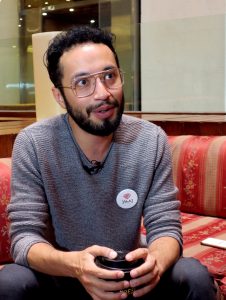By Ines Amarelo
Mexico City, Jun 28 (EFE).- Sexual-conversion therapies continue to be applied in Mexico despite their absolute inefficiency and the great danger they entail for individuals of the LGBT community, who end up feeling ill and suffering a dangerous loss of identity.
The therapies known as Efforts to Correct Sexual Orientation and Gender Identity include physical mistreatment, deprivation of freedom, economic restrictions and group sex under the pretext of “curing” gay men and lesbians, bisexuals and transsexuals.
Ivan Tagle is the president of Yaaj, an association that fights against these practices and helps youngsters escape them.
When he was 15 years old, he was recruited by the St. Augustine Support Group, where for three days he was not allowed to eat, drink or sleep.
“It depersonalizes you. After three days without sleeping all you want is to sleep, and the only way you can is to do what your torturer wants you to do,” the young man told EFE during LGBT Pride week in Mexico.

In that way the “patients” in those centers stop being who they were and “buy into the trickery and prejudices” to the point of believing they are mentally ill and need to work for acceptance by the group.
Since 1990 homosexuality has been eliminated from the catalogue of mental illnesses by the World Health Organization (WHO), following multiple protests by associations and civil society.
For two and a half years, Ivan practiced a kind of activism in which he tried to help other young people in doubt about their sexuality, encouraging them to undergo therapies to cure themselves. By then he was an “ex-gay.”
There are many kinds of sexual-conversion therapies, among which the activist noted those suffered by lesbians, whose families have them undergo repeated sex with a man to see if that “cures” them of being attracted by women.
Such violent treatments ravage the minds of those who suffer them, above all because most are just into their teens and are still forming their way of thinking.
According to a study by the University of San Francisco, Tagle said, the after-effects of those who try these practices include the risk of depression, suicide, and up to three times more possibilities of engaging in high-risk sex as a kind of “silent suicide.”
It also affects the self-esteem and blocks full personality development, “which in turn generates a social inequality…among young people, who are the main victims,” the activist said.
It is precisely during the development of after-effects when some of the “patients” become aware that sexuality and gender identity cannot be changed, only repressed.
“The majority who abandon this practice do so because they have hit bottom. They finally realize there are as many ways to live as a homosexual as there are as a heterosexual,” said Tagle, now age 30.
At present, though no reliable figures exist about the use of these conversion practices in Mexico, it is known that associations like Yaaj currently receive many young people looking for their true identity.
No figures exist because only one in every 10 victims dares to make a complaint.
This occurs because most are teenagers who cannot complain without the approval of their parents or who “have come out of the closet” with their families hoping to get them treatment. “The worst thing they can do is make a complaint,” Tagle said.
Meanwhile, the United Nations Office on Drugs and Crime (UNODC) recently presented in Mexico City the “Nothing to Cure” guide prepared jointly by the National Autonomous University of Mexico (UNAM) and Yaaj, among others, aimed at orienting mental-health professionals on methods to combat Efforts to Correct Sexual Orientation and Gender Identity.
